Until 1982, if you wanted to go on holiday, you had to go to a high street travel agent, who would generally make a bunch of phone calls and tell you to come back later. Then Thomson Holidays introduced the first computerised booking system and pricing was deregulated – enter the golden age of Brits-on-tour package trips to Benidorm, Torremolinos and the other resorts scattered along the Costa del Sol.
It created a curious phenomenon of its own: the hit single the holidaymakers brought home. Plenty of 1980s European artists won a single hit, perhaps two, in the UK before slinking back into obscurity or – just as often – back into the domestic or continental stardom they already had before the British deigned to take an interest. For a few weeks, their names were inescapable: Spagna, Sabrina, Modern Talking, Desireless, Baltimora, Opus, Nena. Then they became pub quiz answers.
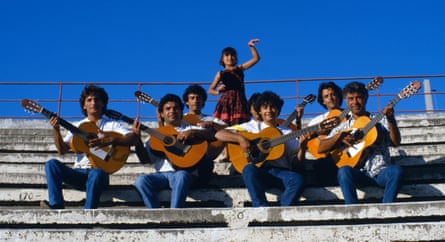
Among the travellers going out to Spain was the Radio 1 DJ Gary Davies, who championed many of the big 80s Europop hits on his afternoon show. “There were two main places I would go,” he says. “Marbella and then Ibiza, which I discovered in 1986. I’d be out in bars and in clubs all the time and hearing a lot of European music. For example, I heard Bamboléo by Gipsy Kings in Ibiza and it just blew me away. I got hold of a copy while I was there, brought it back, played it on the radio and the reaction was so great that they got a record deal in the UK.”
Europop hits could grow from seemingly infertile soil. Opus were an Austrian band who made music not unlike Supertramp – prog-inflected pop-rock – and had grown an audience first in their home country and then in Italy. After four albums, they were popular enough to justify recording a live album, for which the guitarist and songwriter Ewald Pfleger decided to write a new song. “We were playing to about 5,000 people and my aim was to compose a song for them [to sing],” he says. “So I had to use a simple melody and simple words. We had to do it twice, the second time at the end of the show, and of course the second time was much better, because the audience knew the song. They sang and clapped with us – and that was the birth of a worldwide hit.”
The song was the cheesily stirring Live Is Life, which in 1985 and 1986 spread around the world, its one-size-fits-all lyrics finding universal popularity: “When we all give the power / We all give the best / Every minute of an hour / Don’t think about the rest.” For the best part of two years, Opus toured globally to promote it. “We had been together for 12 years and our aim was to get successful outside Austria, outside Europe. So when it happened, we took it as it was,” Pfleger says.
But when Live Is Life had faded, those outside the Germanic world no longer cared. “It’s just a fact,” Pfleger says. “It’s not easy for Austrian acts. Falco didn’t get the chance to have a second hit after Rock Me Amadeus and it was the same for us.”
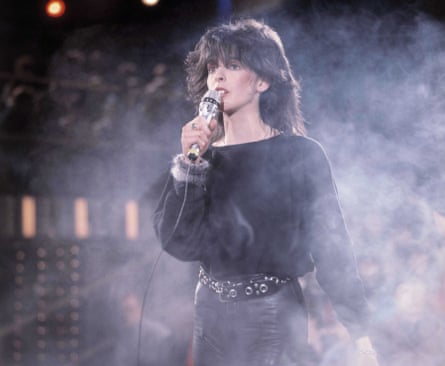
Nena were a young West Berlin band, loosely associated with the neue Deutsche welle (new German wave) of the early 80s, who wanted their third single to be an anti-war rock song called 99 Luftballons. “That created quite a panic at our record label,” says the band’s eponymous singer (born Gabriele Kerner). “Their main argument was that the song didn’t have a chorus and wasn’t commercial enough.”
But the song became a huge smash in Europe – full of brash energy, it had “one of the best hooks of the 80s”, according to the musician and writer Scott Miller, despite its “embarrassingly out-of-place disco-funk interlude”. And like so many other Europop smashes, it owed success in the anglosphere to a DJ.
“Rodney Bingenheimer of KROQ in LA caused our breakthrough,” Nena says. “Christiane F [the German actor and musician] was invited to Rodney’s radio show and she brought a suitcase of her favourite German music, which included our first album. He loved the song and played it up to seven times a day and other radio stations followed suit. Before any label even realised it would be worth releasing us, we already had a chart entry in America.”
99 Luftballons reached No 2 on the Billboard Hot 100 in December 1983. Britain (and Canada, Australia and South Africa) had to wait until the following year for 99 Red Balloons, an English-language version whose lyrics the band didn’t really warm to, but which became a monster hit in turn.
Nena remained a huge star – the most successful female singer in German chart history – but those 99 balloons were the beginning and end of her UK chart career (the follow-up, Just a Dream, peaked at No 70). But, as she points out, they were all so young that no thought was given to capitalising on that hit.
“The word career didn’t even exist in our vocabulary,” she says. “We never analysed or sought explanations. I was just fulfilled experiencing so many beautiful and exciting things. None of us expected our success and when it happened we celebrated and lived it to the fullest.”
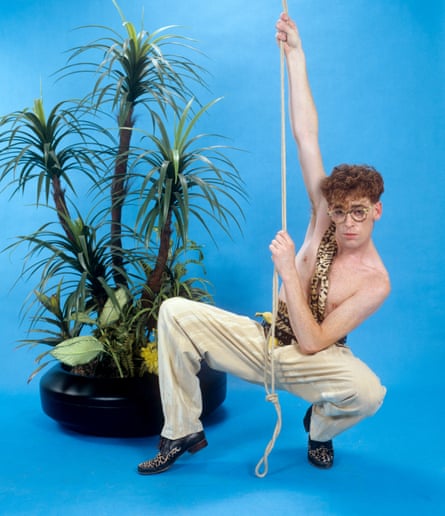
Europop smashes often live on in the mind, partly because they are unusual, and partly because that novelty makes them powerful signifiers, easy to use in films to mark a time and place. Nena’s hit was used in, among many others, Grosse Pointe Blank, Boogie Nights, The Wedding Singer, Atomic Blonde and Despicable Me 3; even Baltimora’s Tarzan Boy ended up on a few soundtracks.
Live Is Life, though, secured a strange afterlife. For one thing, it became a staple of sports arenas around the world (and its popularity soared again once YouTube came along, thanks to a clip of Diego Maradona doing keepy-uppies in time to it). For another, it was given one of pop’s most extraordinary reimaginings when the Slovenian art band Laibach rearranged it into a terrifying martial statement, in English and German.
In the bland call to unity of the original lyrics, Laibach found something else and rewrote it as Leben heißt Leben.
“Mediocrity in language is a powerful weapon – it strips words of resistance and makes them infinitely adaptable,” they say via email. “The hollow optimism of old Eurohits offers a perfect canvas for reinterpretation, subversion and reappropriation. These songs were never truly about any meaningful meaning – popular culture rarely understands itself – and when we reinterpret these songs, we simply help them discover their deeper, often unintended, potential.”
But why remake it in that way? “Songs are not innocent; beneath every sweet song lies a hidden command. Our version only amplifies what was already present: the spirit of order, discipline and collective will. If it now sounds like a marching anthem, it is because the DNA was always there, waiting to be activated. Nostalgia, nationalism, conformity – these are not our inventions. They are the silent architects of European history, European order, and they are behind much of European pop culture, too. We only turned up the volume.”
And what does Pfleger make of that rendering of his song? “I don’t like it,” he says, his face souring. “You know, they never contacted us since they did it. It has no positive feeling and more a dark, bad energy.”
Big holiday hits flourished in the 90s and 00s, too – The Ketchup Song, Macarena – but they were clearly recorded as novelties, in a way most of the 80s hits had not been. Today, Europop hits blossom in micro-moments on TikTok, while globalised streaming culture means that when you’re poolside in Spain or Greece, you are more likely to hear Bad Bunny, Sabrina Carpenter or some generic tropical house than a homegrown hit to export back home alongside a novelty fridge magnet.
That means Pfleger and Nena seem all the more like outliers – but they remain delighted by the songs that changed their lives for a summer or two. “I’m very proud that an Austrian band had this success,” Pfleger says. “I wrote more than 200 songs and it is very special to have one that so many people liked.” 99 Luftballons means Nena’s name is instantly recognisable: she will be touring this October, with a London show lined up. “I love that song,” she says.
Nena plays O2 Shepherd’s Bush Empire, London, on 11 October

 6 hours ago
3
6 hours ago
3

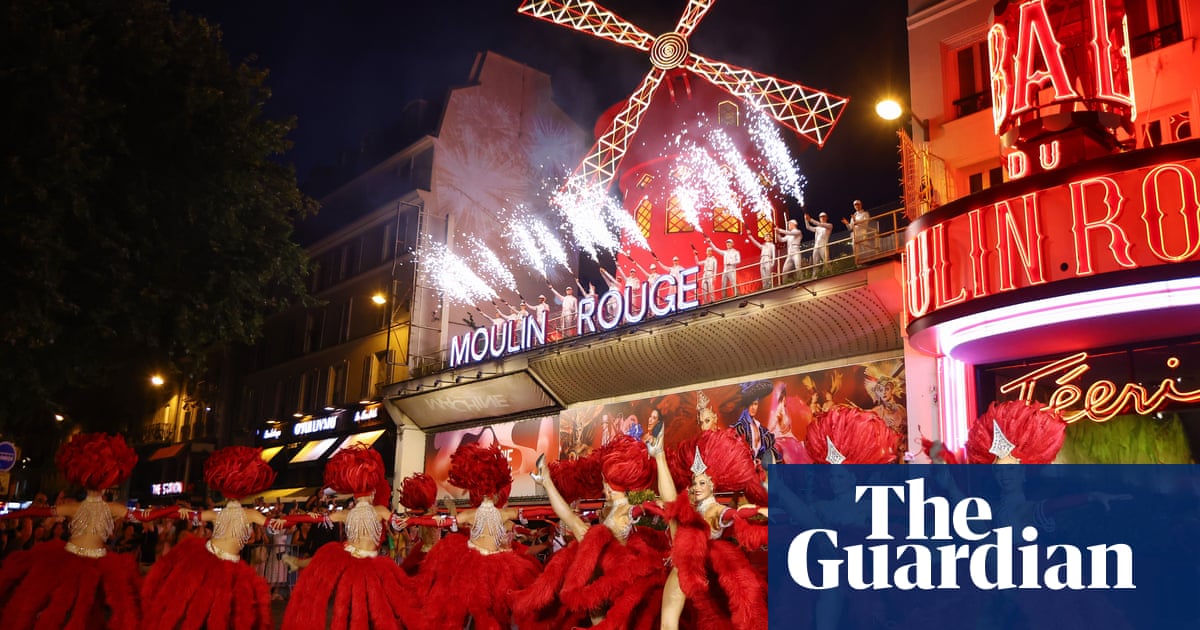
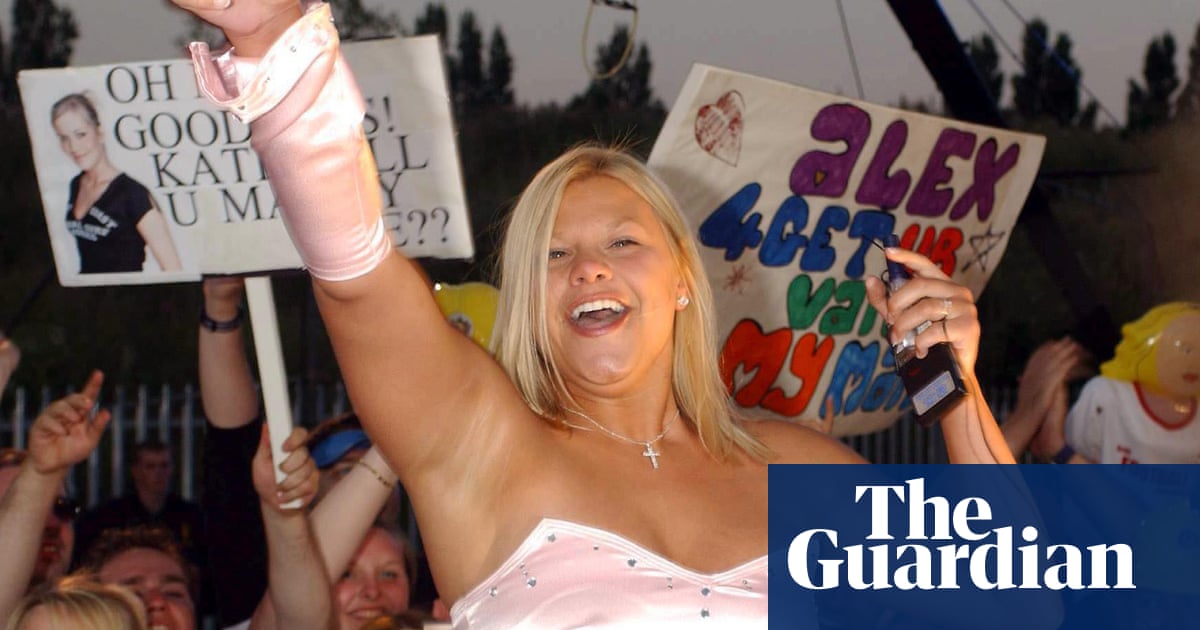
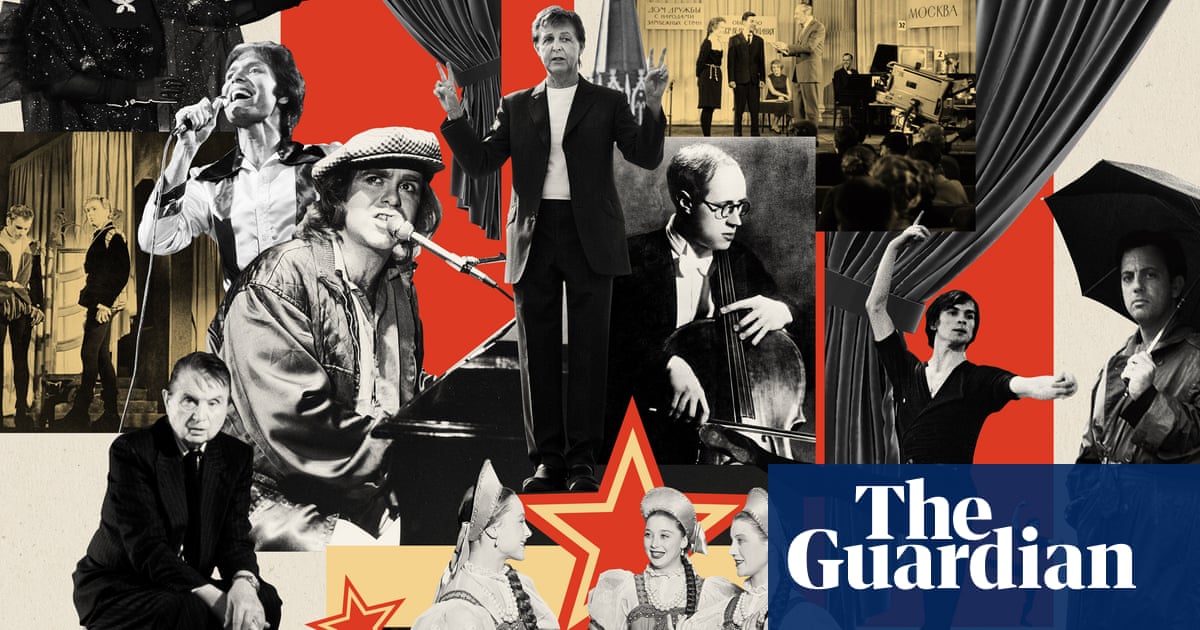


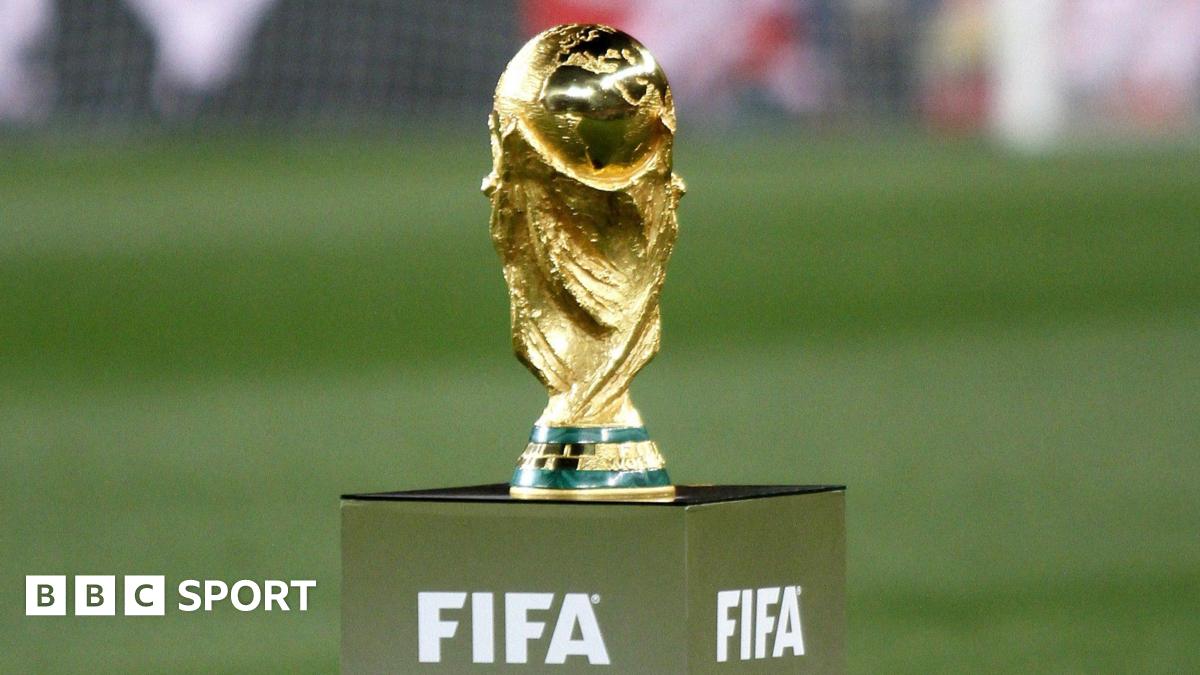



 English (US)
English (US)